COVID-19 shook the foundation of much of the professional life and the world of tech. There are many new trends that seem to have emerged such as hybrid working, remote working, and the 4-day work week being amongst some of them.
The Tesseract Academy decided to run a survey to figure out what is the zeitgeist of the post-covid world in matters of organisational culture.
If you want to check some of our old reports you can find them below:
The total pool of participants consisted of 25 tech professionals. About 1/3 of them were CEOs, with about 20% working in tech functions (e.g. software development), and the rest working in sales, HR, business development, marketing and related functions.
Drivers and importance of organisational culture
When asked who drives organisational culture, it looks that the majority of respondents believe that this comes from the CEO, or the c-suite. About 37.5% said that midlevel managers can lead organisational culture.
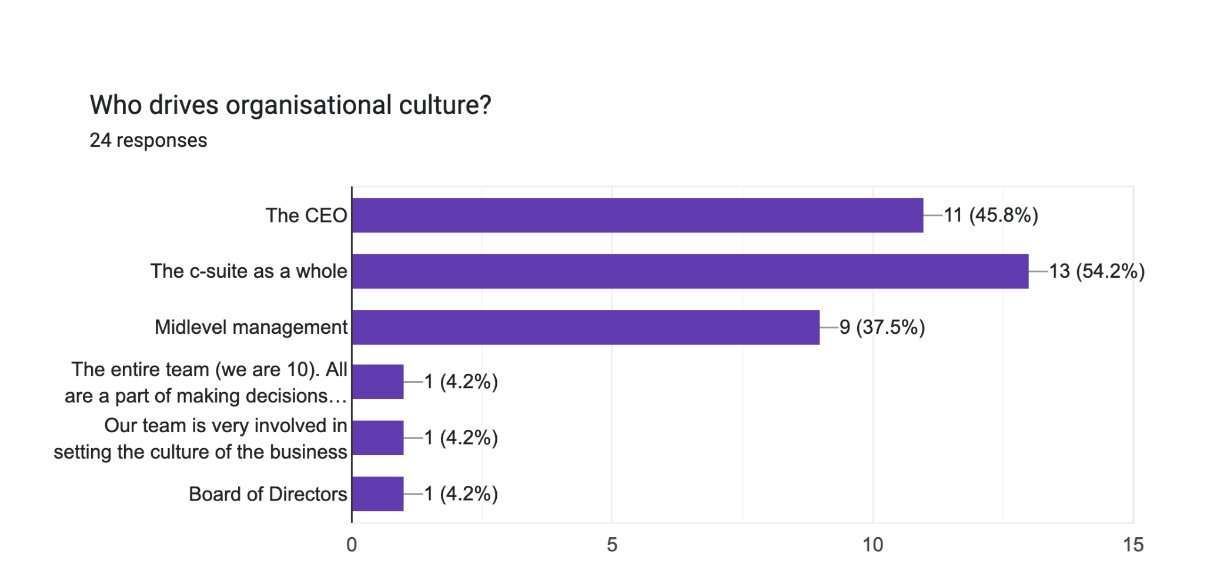
What is interesting is that pretty much everyone believes that organisational culture is something that starts from up high, before trickling down into the organisation. So, leaders need to lead by example.
When asked about the benefits of organisational culture for three companies, the majority of the answers are aligned around three main topics:
- Better employee retention.
- Better employee satisfaction.
- Attracting top talent.
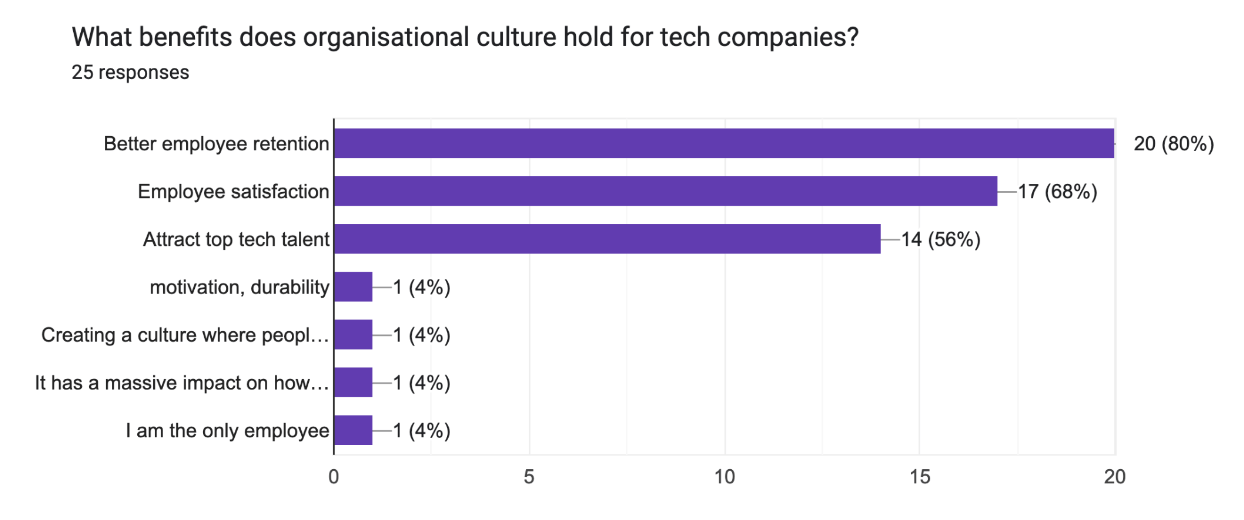
When asked how important company culture is within the organisation, the majority of the respondents clearly believe that it gives their company a competitive advantage.
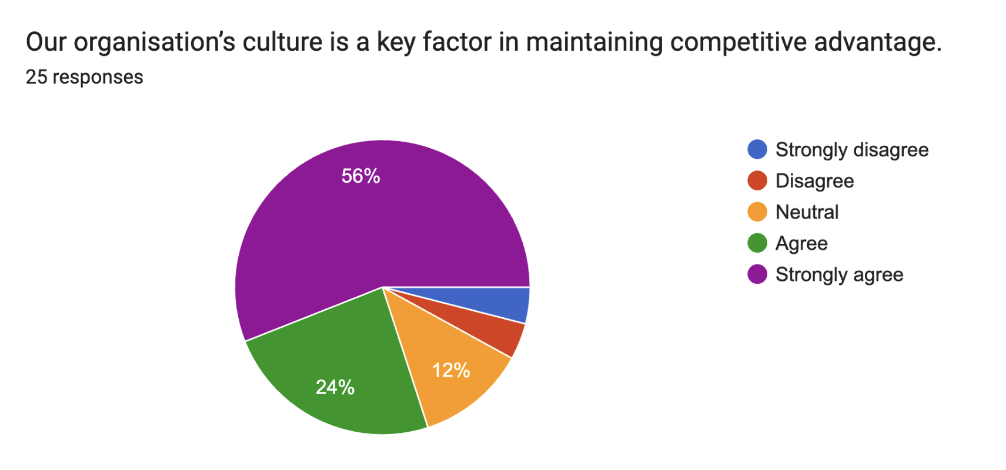
Organisational culture and employee engagement
When asked about the importance of culture in employee wellness, the vast majority of respondents believe it’s a very important factor.
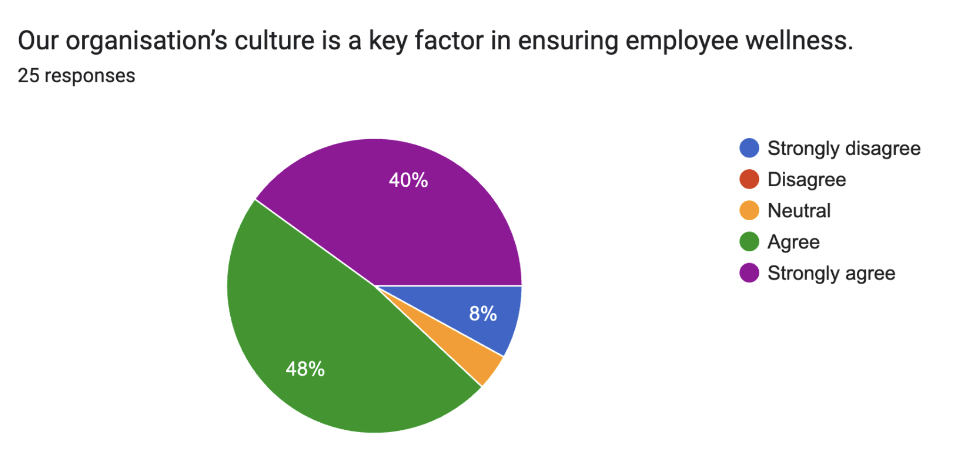
It also looks like that for the majority employees, company culture was a key for staying or leaving a company! This clearly indicates the importance that organisations must give to organisational culture.
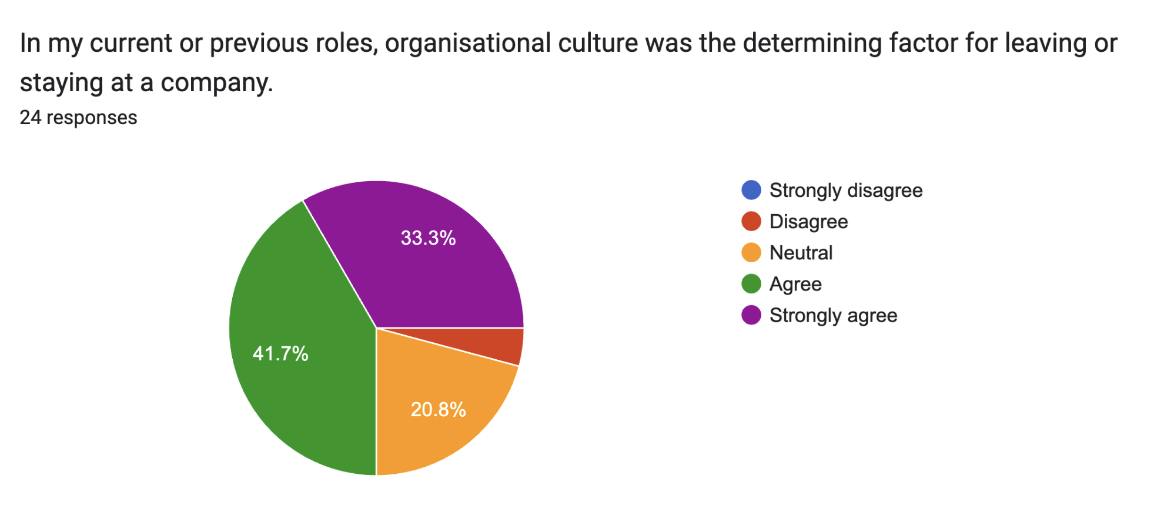
Organisational culture and COVID-19
It’s clear that COVID-19 brought a huge number of challenges for companies. Some thrived, others closed shop and others are still trying to adjust. It looks like about 60% of the respondents believe that the organisational culture of their company is facilitating post-COVID recovery, with only 28% staying neutral on that subject.
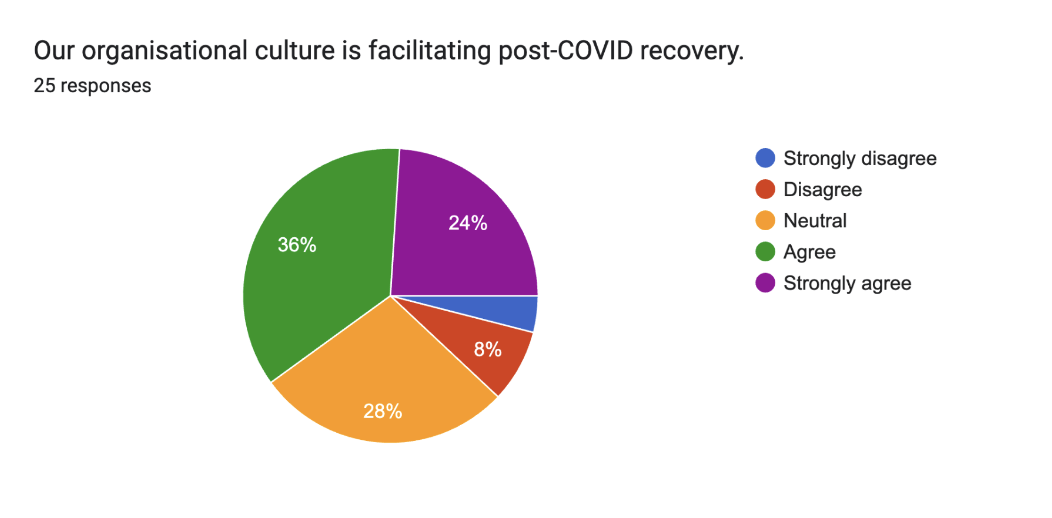
However, when asked to rate the general importance of organisational culture in navigating a post-COVID world, the majority of the respondents consider it very important.
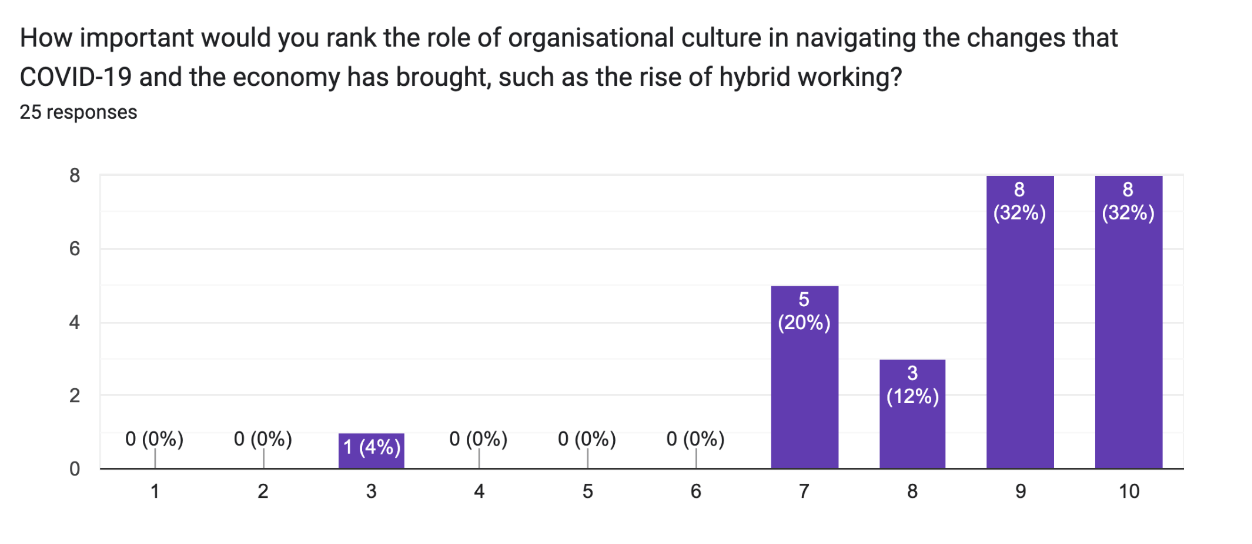
There were only three respondents who felt that it’s not important. Hence, there seems to be a disconnect between the importance of the topic, and the action that companies are taking in terms of improving their culture.
Hybrid working and the 4-day workweek
The majority of the participants seem to be working in a hybrid setting.
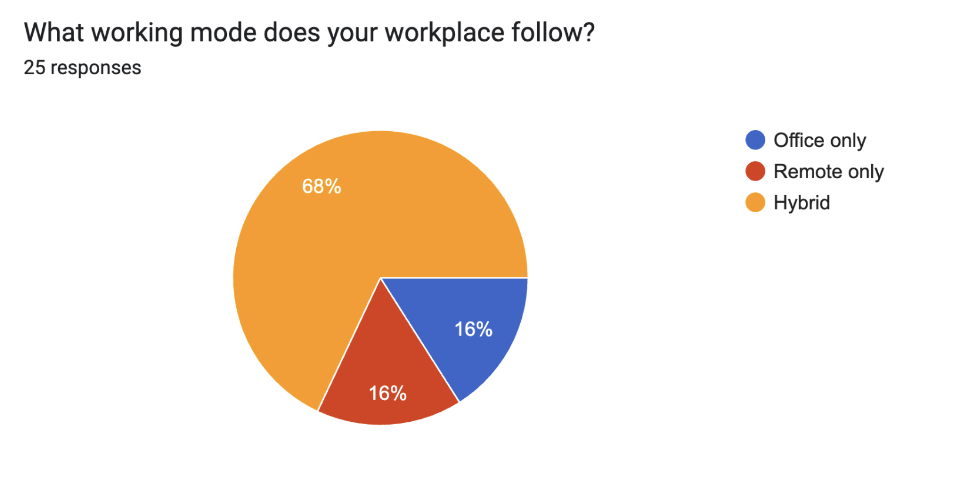
If given the choice, most people would choose to work hybrid, and it looks like that 80% believe that the future will be hybrid as well.
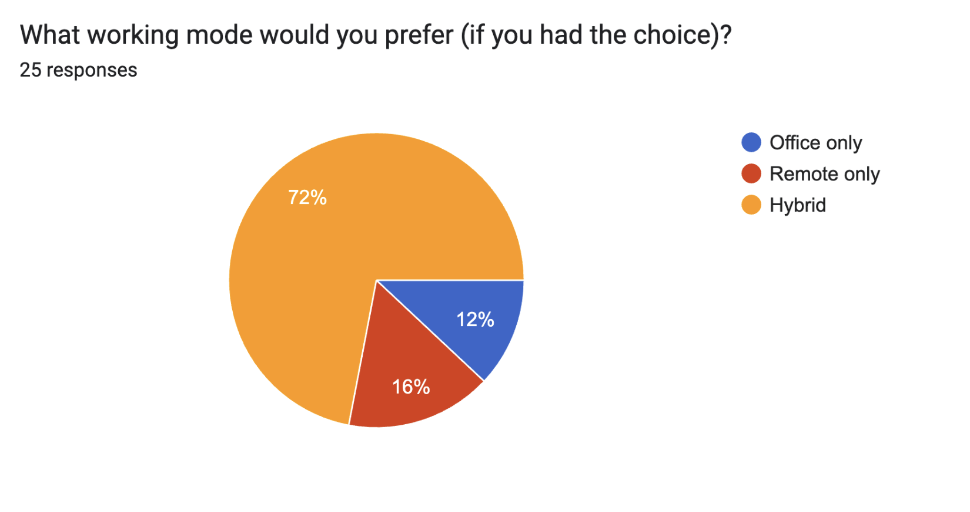
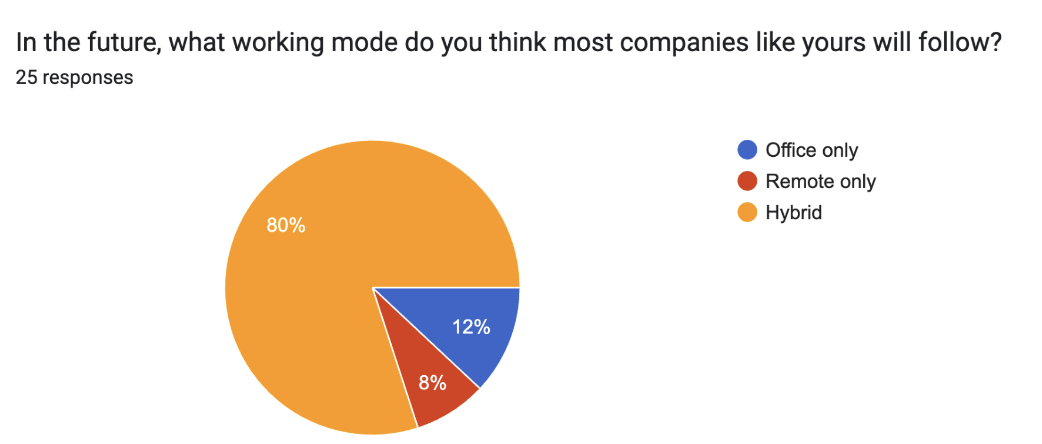
While the majority of the respondents work full time (over 80%) for 5 days a week, at least 50% of them would prefer to work full-time for 4 days a week.
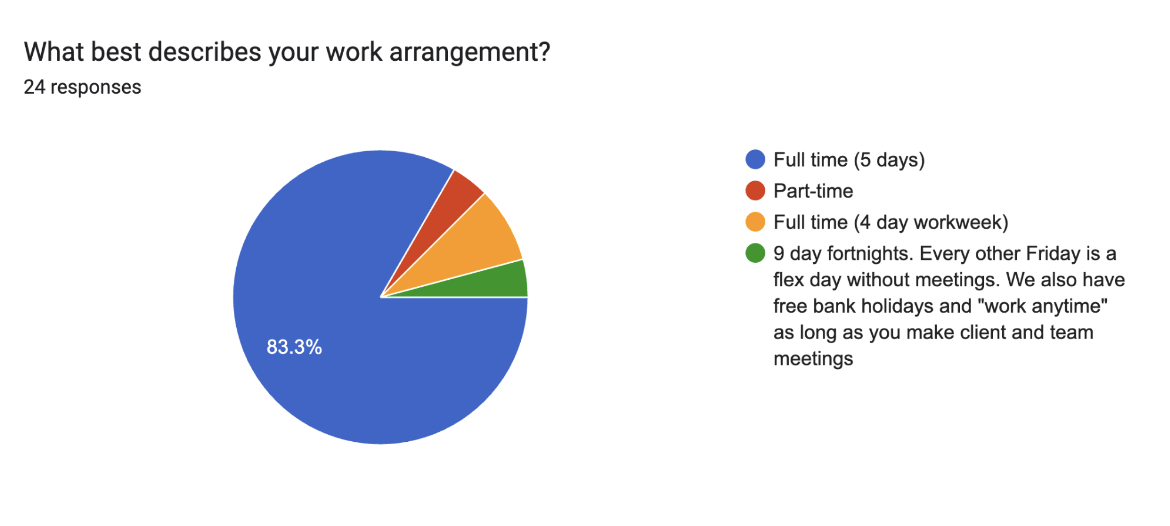
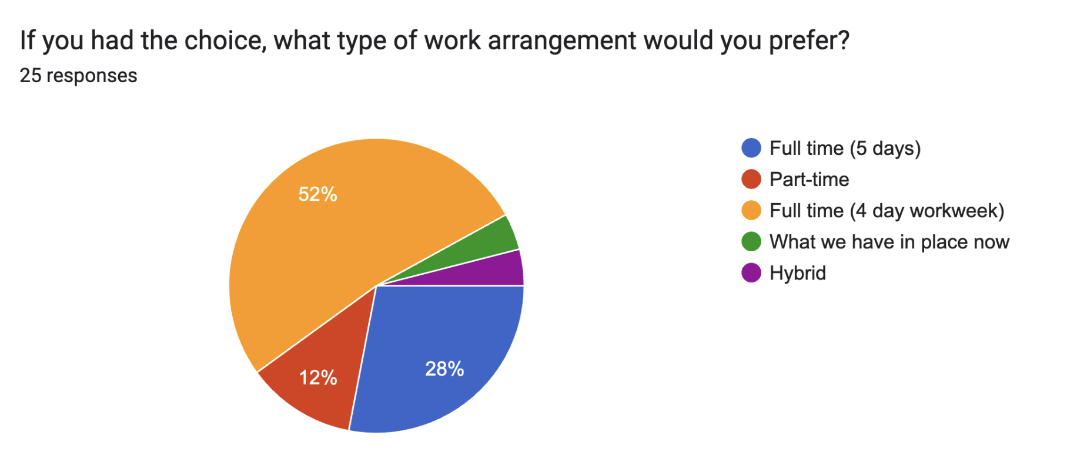
It looks like responses are split as to what the future of employment looks like. Only 40% believe that most companies will offer a 4-day workweek option. Perhaps for many companies, working only 4-weeks is simply not enough.
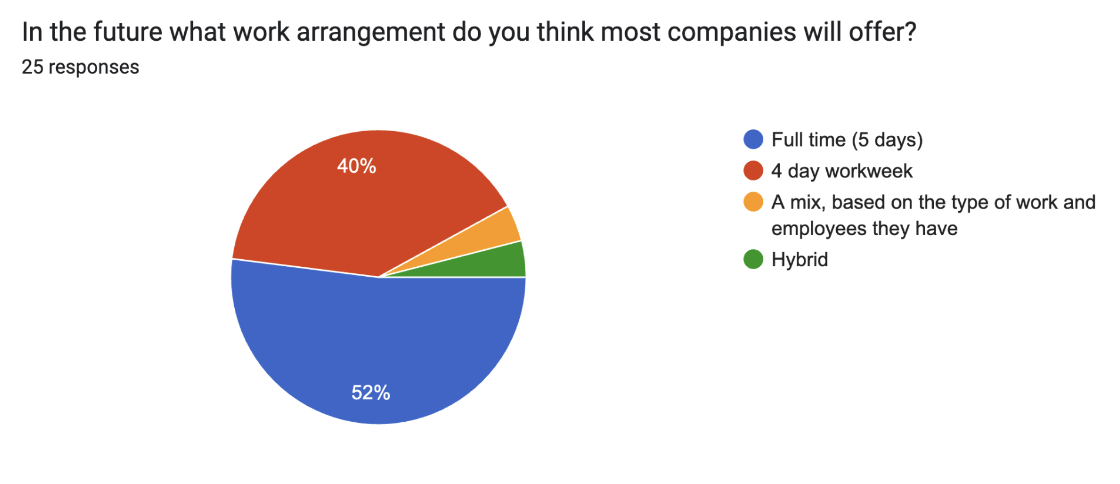
Finally, it looks like opinions are split as to whether company culture will become more or less important because of the new trends. A 32% responds “maybe”, but more than 50% believes it’s clearly important. It’s only an 8% that believes that the culture of a company does not have an important role to play in the current economic circumstances.
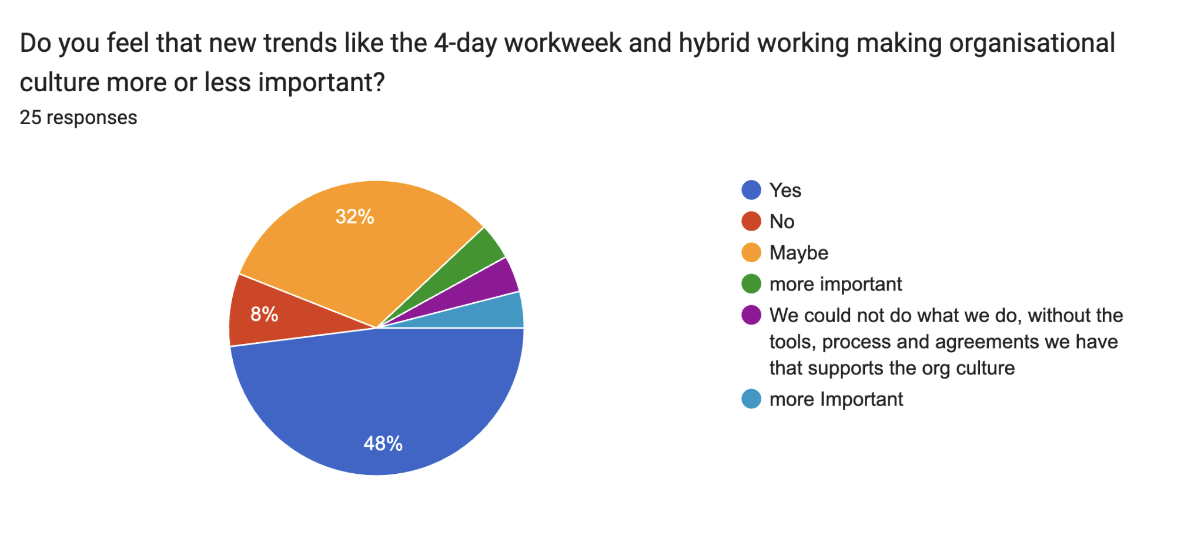
Summary

COVID-19 and the recent economic turbulence has brought many changes to the modern workplace. It’s clear that some trends, like hybrid working, are here to stay. Some others, like the 4-day workweek are popular, but it’s not clear whether they can be implemented successfully.
One thing that’s clear is that organisational culture plays a huge role in the success of any organisation, especially in attracting and retaining top talent. If you are interested to know more, you can check out our services in this area, our free course or simply get in touch. We will be more than happy to help you out.

























